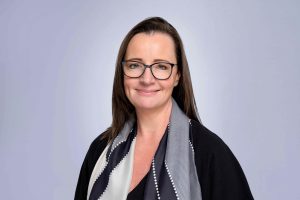Scandals have tarnished all banks says Aldermore chief

THE chief executive and founder of Aldermore, the newly-listed SME-focused bank which was launched just six years ago, says he is concerned that ongoing scandals in the sector will create a talent shortfall in years to come.
Amid continuing delays into the publication of the Financial Conduct Authority’s report into the conduct of Royal Bank of Scotland’s Global Restructuring Group towards its distressed customers and claims that other banks continue to mis-treat SMEs, Phillip Monks said: “It’s very unfortunate that the actions of a few have tainted the reputation of the whole industry.
“It has been a painful industry to be in over the last four or five years and my biggest fear is that it will deter bright people from joining. We need bright young people to come through.
“Let’s not tar everyone with the same brush – there are 800 people here bending over backwards to help customers – but if people have done wrong they should be taken to task.”
In an interview with TheBusinessDesk.com Phillip Monks also called on the Chancellor George Osborne to rethink the new sector-wide tax on banks’ profits which was announced in the recent summer budget, on the grounds that it will harm smaller banks’ ability to lend, and therefore weaken competition in the sector.
Dubbed the corporation tax surcharge, the new tax will take an additional 8% of banks’ profits each year, beginning in 2016, on top of existing corporation tax.
The share price of Aldermore and other challenger banks like Shawbrook and Virgin Money all fell sharply in the aftermath of the budget.
Monks said: “It’s true to say it was unwelcome, and I am glad that the industry as a whole is talking to the Treasury with one voice to try and mitigate it in some form. The BBA (the trade association for the banking sector) claims the tax will cut lending to small businesses by £10bn.
“The Chancellor is on record about wanting to see more competition in the sector. By nature of scale and capital requirements, smaller banks are in an anti-competitive environment. Not being part of the bank levy was one way of levelling the playing field, but that is not the case anymore.”
From a regional perspective Monks, who was a regional director for Barclays in Manchester in the 1990s, praised the renaissance of Manchester and said the North West is a key location for Aldermore.
Around 100 people work in Manchester city centre at the bank’s invoice finance base on Charlotte Street, while 160 people work at its mortgage division in Wilmslow.
Monks said: “Together these sites are our largest concentration of people. This region should be congratulated for its strong and self-sufficient talent pool in finance.”
In the year to the end of March Aldermore had lent £5.1bn to customers – £2.5bn to small businesses and £2.7bn to homeowners. In May the company said it was on track to achieve a target of £1.4bn in 2015.
Having raised £75m in the IPO, Monks said Aldermore’s strategic plan is for organic growth, with a focus on “sticking to our knitting”.
In the wake of Bank of England Governor Mark Carney’s hint this week that interest rates are set to rise by the end of the year, he said consumers and businesses should be able to withstand “gradual” increases in interest rates.
“It shouldn’t frighten the media, the banking sector or consumers – it will be a slow gradual rise to around 2% I expect.”







